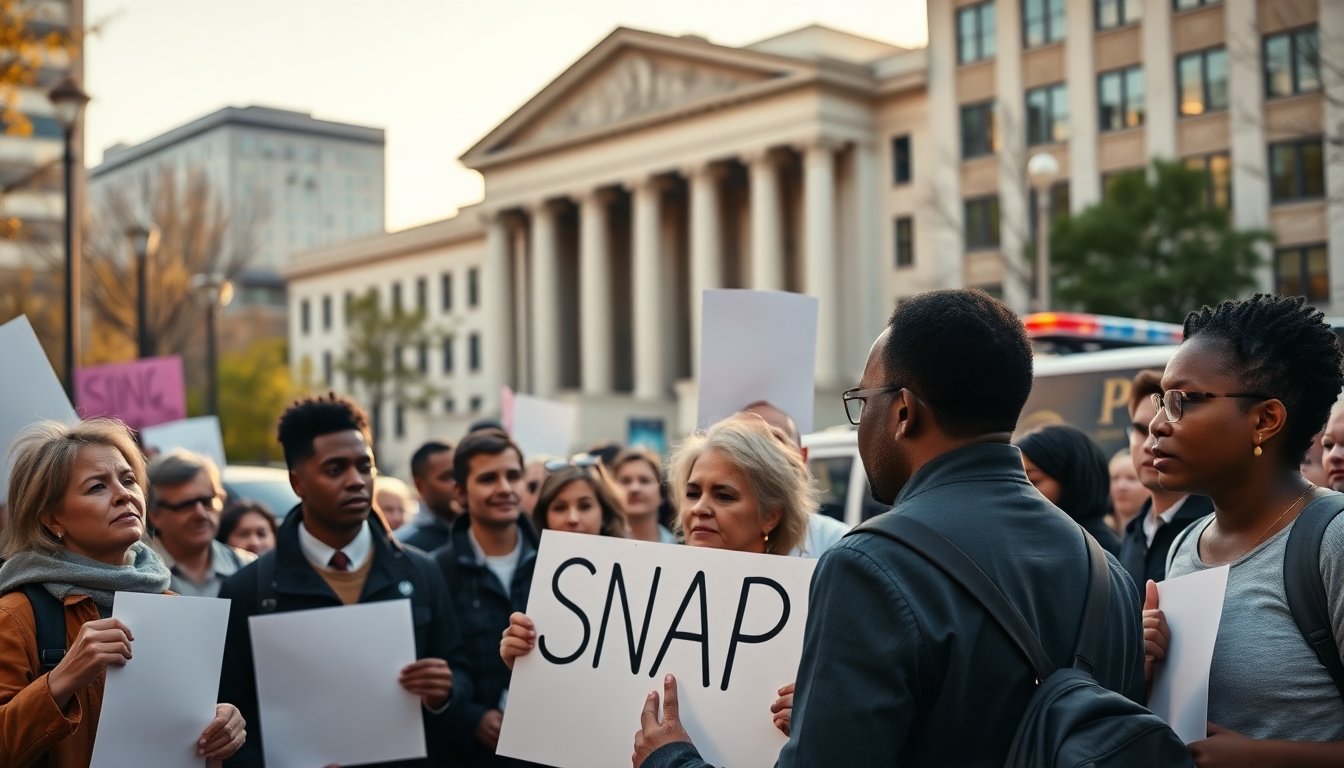Table of Contents
The ongoing legal struggles surrounding the Supplemental Nutrition Assistance Program (SNAP) have intensified, particularly following recent comments made by former President Donald Trump. A federal judge publicly criticized the Trump administration, emphasizing the implications of Trump’s social media activity on judicial proceedings. This incident illustrates the growing intersection of politics, social media, and the legal system in the United States.
As the longest government shutdown in U.S. history continues, the ramifications for millions reliant on SNAP benefits are profound. The situation escalated when Trump, through his platform Truth Social, suggested that SNAP funding would only resume if Democrats in Congress complied with his demands. This statement prompted immediate backlash from the judicial system, highlighting the complexities of governmental operations amid political strife.
Judge’s response and implications
Judge John McConnell addressed the matter directly, interpreting Trump’s remarks as a declaration of intent to disregard a court order concerning SNAP funding. The judge granted the White House just 24 hours to ensure that the November payments would reach approximately 42 million SNAP beneficiaries. In contrast, the Trump administration indicated plans to appeal this order, suggesting a contentious legal battle ahead.
Social media’s role in legal proceedings
This incident underscores a troubling trend whereby the Trump administration’s social media presence has significantly influenced ongoing legal matters. Judicial frustration has mounted as judges grapple with the impact of public statements made by administration officials, including the President himself. In recent cases, judges have expressed dismay at the lack of restraint shown by government representatives on platforms like Truth Social and various cable news programs.
For example, the administration’s approach to immigration enforcement has escalated dramatically, prompting Democratic lawmakers to seek transparency regarding the conditions faced by detainees. An incident in New Jersey, where Newark’s mayor and several Congress members were barred from entering a detention facility, led to significant legal consequences for a first-term representative. This situation culminated in an indictment for assaulting federal officials, illustrating how social media rhetoric can escalate tensions and provoke legal repercussions.
Judicial scrutiny of government actions
The legal actions surrounding SNAP benefits and the Newark incident are not isolated. In Utah, the case of former Ecuadorian national soccer player Erwin Ramirez Castro exemplifies the ongoing scrutiny of the federal government. Allegations of his illegal residency in the U.S. resulted in a lengthy legal battle, complicated by social media posts from Immigration and Customs Enforcement (ICE) labeling him as part of a notorious group after his acquittal on domestic charges.
Influence of social media on judicial outcomes
Such portrayals raise critical questions about the integrity of the legal process and the potential for bias influenced by public sentiment. As Ramirez Castro’s legal team argues, the dissemination of misleading information via social media casts doubt on the government’s motives and the veracity of their claims. This ongoing tension between law and public perception underscores the challenges faced by the judiciary in maintaining impartiality amid politically charged narratives.
The case of Luigi Mangione, involved in a high-profile prosecution linked to a violent incident, further illustrates the tenuous relationship between judicial proceedings and social media commentary. Attorney General Pam Bondi’s public remarks about pursuing capital punishment for Mangione have drawn the ire of Judge Margaret M. Garnett, who raised concerns about potential violations of judicial protocols regarding pretrial publicity.
The future of judicial integrity
As the Trump administration navigates a complex legal landscape, the role of social media in shaping public opinion and judicial outcomes remains significant. The implications of Trump’s statements and the subsequent judicial responses highlight the delicate balance between executive power and the rule of law. With ongoing legal battles ahead, the judiciary’s ability to maintain impartiality amidst the turbulent currents of political discourse will be crucial in upholding the integrity of the legal system.
As these cases unfold, stakeholders from all sides must contend with the consequences of social media’s pervasive influence and its potential to shape not just public opinion but the very fabric of legal proceedings in the United States.


